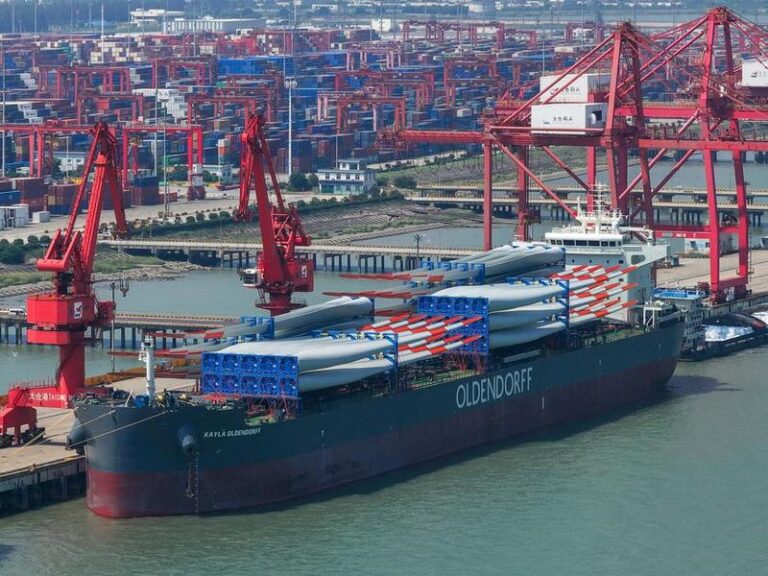A drone photo taken on Sept 16, 2025 shows a vessel docking at Taicang Port in East China’s Jiangsu province. [Photo/Xinhua]
The newly amended Maritime Law will help advance the high-quality development of China’s shipping and trade sector, strengthen marine environmental protection and promote high-level opening-up, an official said.
With 310 articles in 16 chapters, the revised law was adopted by the Standing Committee of the National People’s Congress, China’s top legislature, on Tuesday.
The law will also help optimize the country’s foreign-related legal instruments and contribute to improving its rule of law capacity, according to Shi Hong, a member of the NPC Standing Committee’s Legislative Affairs Commission.
Shi emphasized the importance of amending the law. He noted the legal adjustments are conducive to standardizing maritime transportation and vessel relations.
“Maritime transportation is the primary mode of international trade and a key pillar of economic globalization,” he said, highlighting how the law, enacted over 30 years ago, has played a crucial role in facilitating shipping and trade.
“However, with continuous socioeconomic development, emerging circumstances and challenges have necessitated the adjustments in the law to address new issues,” he said.
Shi said technological achievements and the rapid expansion of shipping and trade volumes have outpaced existing legal provisions.
He added that the achievements of advancing marine ecological conservation efforts also need to be comprehensively enhanced through legislation.
The revised law adapts to the latest trends in shipping and trade, draws on the latest international maritime conventions and balances the interests of relevant parties, he said.
The amended law strengthens protection for passenger rights by appropriately raising the compensation limits for watercraft in cases of personal injury or property loss while transporting passengers.
It introduces new provisions outlining the responsibilities for ship oil pollution damage to intensify the legal framework for marine ecological conservation, stipulating that neither salvage parties nor those being saved may contractually waive their obligations to minimize environmental harm.
It also clarifies the legal status and application rules for electronic transportation records, aiming to foster stable market expectations and provide an institutional guarantee for the shipping industry’s digital transformation.
Moreover, efforts should be made to support international cooperation in maritime affairs and promote the country’s growing shipping industry, according to the revised law that will take effect on May 1.
The current Maritime Law was established in November 1992 and came into force in July 1993. Before the adoption, it was reviewed by the NPC Standing Committee in November 2024 and in June this year.
caoyin@chinadaily.com.cn
Images are for reference only.Images and contents gathered automatic from google or 3rd party sources.All rights on the images and contents are with their legal original owners.

